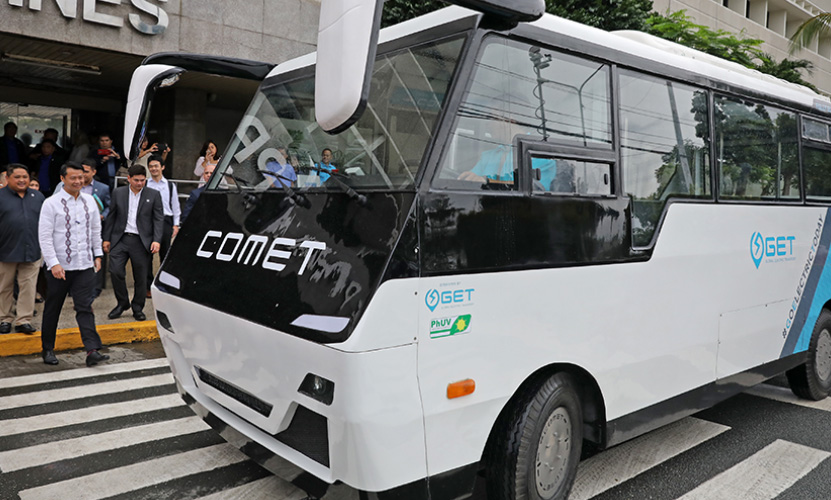
The Senate Committee on Energy held a public hearing on a bill seeking to ensure not only the promotion and adoption of electric vehicles (EVs) but also the sustainability of the EV ecosystem in the country in the long run, Senator Win Gatchalian said.
Senate Bill No. 174 or The Electric Vehicles and Charging Stations Act, one of the 10 priority bills of Gatchalian, is the first bill to be tackled by the Senate Committee on Energy in the 18th Congress.
Gatchalian pointed out that discussions on EV adoption is very timely, especially since the bill is aligned with the Duterte administration’s direction toward the promotion of environmentally-clean and ecologically-safe energy sources in addressing the country’s energy needs.
“Adopting vehicles which run on electric motor instead of traditional internal combustion engine will allow the transportation sector to comply with the twin policies of enhancing energy independence and promoting clean energy laid across the country’s energy policies,” he said.
Gatchalian’s SBN 174 seeks to address the challenges in the development of the electric vehicle industry by mandating the DOE to create an Electric Vehicle Roadmap and distribution utilities to incorporate a Charging Infrastructure Development Plan in their Power Development Plan.
Through his proposed measure, Gatchalian hopes to solve the entire ecosystem of e-vehicles, including one of the most important components: the charging stations.
The measure seeks to require private and public buildings and establishments to have dedicated parking slots with charging stations, installed by charging station service providers, and for gasoline stations to have a dedicated space for charging stations.
SBN 174 also expands non-fiscal incentives, including exemption from number coding and prioritization in registration, and institutionalizes time-bound fiscal incentives for manufacturers and importers of electric vehicles.
“By promoting the use of e-vehicles in the country, the Philippines will become less dependent on oil importations,” Gatchalian said.
“At the same time, we would reduce dollar outflows, mitigate greenhouse gas emissions, create more jobs for Filipinos,” he added.
The lawmaker noted that the transport sector is currently the biggest contributor to the country’s total energy consumption, accounting for more than one-third or 37.2 percent. Data from the DOE shows that the transport sector is also a major consumer of petroleum products, consisting of 25.72% of the total 75,370.50 barrels that were consumed in 2016.
Meanwhile, data provided by the Philippine Statistics Authority (PSA) show that 99.48 percent or 8,039,233 out of 8,081,224 of motor vehicles in the country are run by diesel and gasoline. On the other hand, the number of electric vehicles in the country as of 2014 is around 145 units.
“Notwithstanding the contribution of electric vehicles to energy security, sustainability and savings, barriers still remain for the development of the industry, specifically the high upfront costs of owning an electric vehicle and the limited charging infrastructure,” he said.
“Thus, it is crucial that a policy and regulatory framework is in place to usher in the uptake of electric vehicles in the country,” Gatchalian added.


